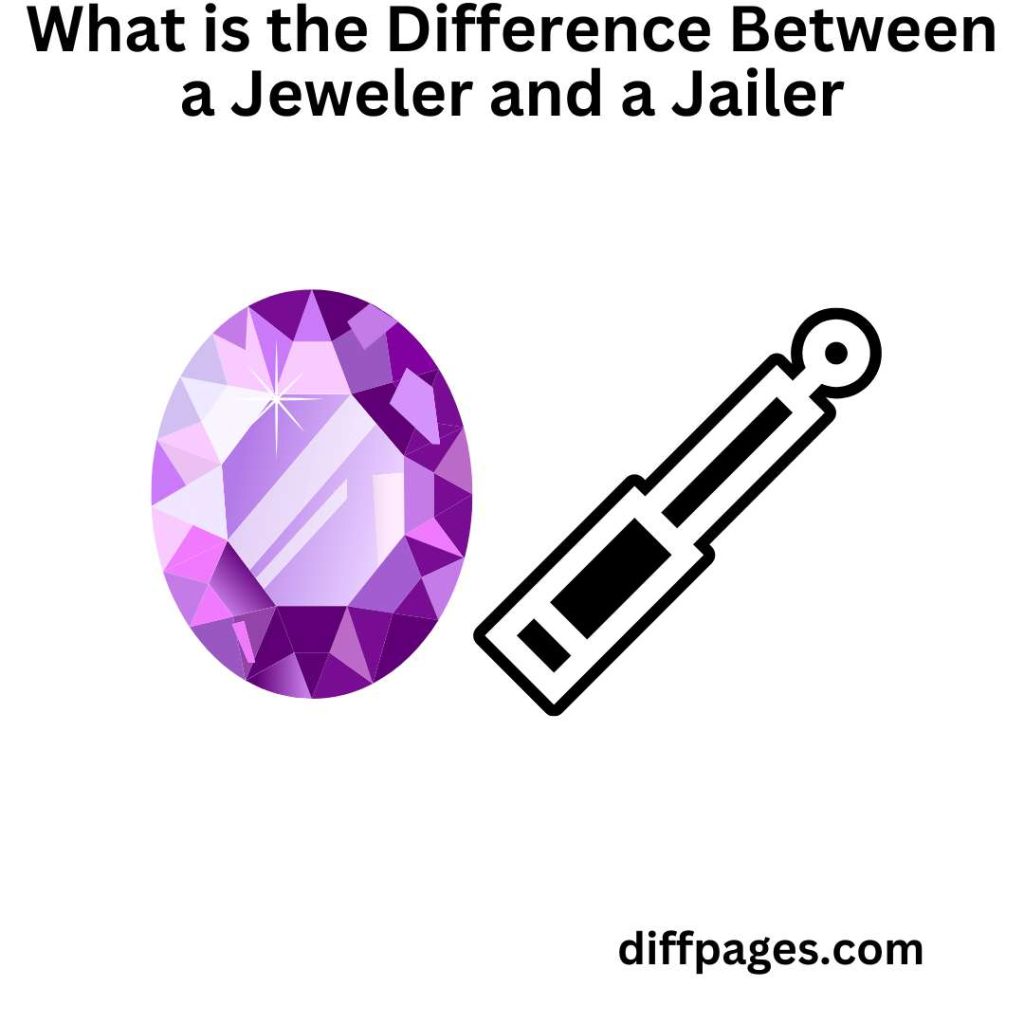In the vast landscape of professions, every role holds its unique significance, requirements, and challenges. From the creative domain of a jeweler to the law enforcement environment of a jailer, each profession demands a particular set of skills and knowledge. This article delves into a detailed comparison of these two distinct professions, shedding light on their primary responsibilities, required skills, work environment, and more. The aim is to provide a clear understanding of what sets a jeweler apart from a jailer, while acknowledging the unique contributions each makes in their respective fields.
Jeweler
A jeweler is a professional who designs, manufactures, sells, or repairs jewelry. They work with various materials, including gold, silver, diamonds, and gemstones, to create wearable art pieces. The term “jeweler” can refer to a number of roles within the jewelry industry. Some jewelers may specialize in one particular area, such as design, fabrication, or gemstone setting, while others may perform a variety of tasks.
Jewelers require a keen eye for detail and a deep understanding of the properties of various materials. They also need to understand customer needs and desires in order to create pieces that will be cherished. Jewelers might work in a retail setting, own their own business, or work in a production environment.
Jailer
A jailer, also known as a correctional officer, is a law enforcement professional responsible for overseeing individuals who have been arrested and are awaiting trial, or who have been sentenced to serve time in a jail or prison. Jailers ensure the safety and well-being of these inmates, enforce prison rules, prevent disturbances, and ensure that the facility is secure.
Jailers work in an often challenging and high-stress environment. They require strong interpersonal skills and the ability to handle potentially volatile situations. They also need a thorough understanding of the rights of inmates and the legal regulations regarding their treatment. Training for jailers often includes both classroom instruction and on-the-job training.
Key Differences between Jeweler and Jailer:
- Nature of Work: A jeweler is involved in the design, creation, and repair of jewelry, which is an artistic and skilled craft. On the other hand, a jailer is involved in law enforcement and prison administration.
- Required Skills: Jewelers require artistic skills, precision, and a deep understanding of materials and gemstones. Jailers, however, need strong interpersonal skills, the ability to handle high-stress situations, and an understanding of the law and rights of inmates.
- Working Environment: Jewelers typically work in workshops, retail stores, or small businesses. In contrast, jailers work in correctional facilities, which can be a challenging and often stressful environment.
- Education and Training: Jewelers typically learn their craft through apprenticeships or specific jewelry design programs. Jailers, however, usually require a high school diploma and undergo specific training programs often offered by the correctional facility.
- Interactions with the Public: Jewelers interact with customers to sell jewelry or understand their requirements for custom pieces. Jailers, conversely, interact primarily with inmates and other law enforcement professionals.
- Potential Risks: While jewelers may face risks such as injury from tools or potential robbery, jailers encounter risks associated with managing inmates, which can include violent confrontations.
- Job Purpose: The primary job of a jeweler is to create and sell items of beauty that people use for personal adornment or to give as gifts. A jailer’s role is fundamentally about maintaining order and security within a correctional facility.
Conclusion
In conclusion, while the professions of a jeweler and a jailer may appear starkly different on the surface, both play integral roles in our society. The jeweler crafts pieces of beauty and significance, requiring a blend of artistic skill and technical expertise. On the other hand, the jailer ensures the safety and orderliness of correctional facilities, demanding a strong resolve, robust interpersonal skills, and a thorough understanding of the law. Understanding these differences helps us to appreciate the unique challenges and contributions of these professions.
FAQ
What kind of education or training do jewelers and jailers typically require?
Jailers, also known as correctional officers, typically need at least a high school diploma or its equivalent, though some jobs require a college degree. Most correctional officers go through a training academy and then receive additional on-the-job training at the facility where they’ll work. They often also have a period of probationary employment.
What are the typical job duties for a jeweler versus a jailer?
Jailers, on the other hand, oversee individuals who have been arrested and are awaiting trial or who have been sentenced to serve time in jail or prison. They are responsible for the safety and security of the facility, enforce rules and maintain order, supervise inmate activities, and sometimes assist in rehabilitation and counseling of offenders.
How does the work environment differ between a jeweler and a jailer?
Jailers work in correctional facilities, which can be stressful and potentially hazardous environments. They must be alert and observant at all times, as they deal with inmates who may be unpredictable or dangerous. The job often requires physical stamina and can involve irregular hours, as correctional facilities operate around the clock.
